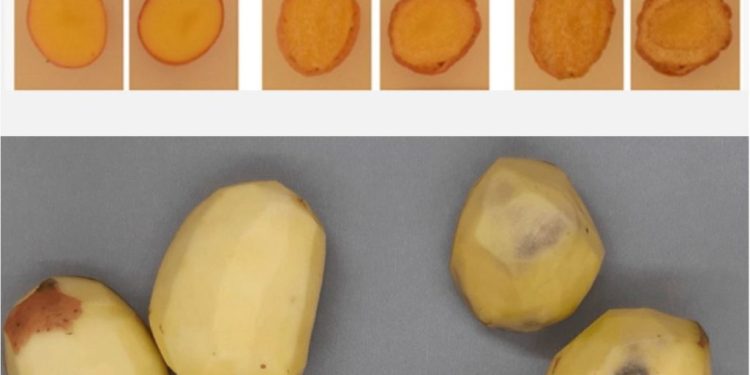In a groundbreaking development reported by Simon Maechling in “Science and Innovation in Agriculture,” Latin America is on the cusp of releasing its first genetically edited potato, a crucial step forward in the region’s agricultural innovation. This significant achievement, driven by the National Institute of Agricultural Technology (INTA) in Argentina, focuses on addressing the enzymatic browning that occurs when potatoes are cut, peeled, or subjected to the rigors of harvest and transport.
The potato, cultivated in the Andes 8,000 years ago, stands as the third most vital crop for human consumption globally, following rice and wheat. Its importance in ensuring food security for millions in Latin America, Africa, and Asia cannot be overstated, according to the International Potato Center based in Peru, the tuber’s origin.
Utilizing the revolutionary CRISPR-Cas9 gene-editing technique, researchers, led by Dr. Matías González at the INTA’s Agrobiotechnology Laboratory, successfully silenced the gene responsible for polyphenol oxidase enzyme expression. This breakthrough has the potential to mitigate the browning and bruising that lead to substantial losses for farmers and contribute to food waste when consumers reject aesthetically compromised produce.
Tests demonstrated that genetically edited potatoes can resist darkening for up to 48 hours when exposed to air, a stark contrast to conventional potatoes, which succumb to browning within minutes. Importantly, the edited potato underwent scrutiny from Argentine regulatory authorities, who deemed it conventional since it lacks genes from distant organisms, exempting it from the regulatory framework designated for transgenic crops.
Looking ahead, this genetic improvement, initially applied to the Desiree variety, opens the door for replication in other potato varieties. According to Dr. Gabriela Massa, a researcher at INTA and CONICET, the potato sets a precedent for utilizing cutting-edge biotechnology to enhance crops, making it applicable to varieties of interest in Latin America and beyond.
María Andrea Uscátegui, the Executive Director for the Andean Region at the Agricultural Plant Biotechnology Association – Agro-Bio, envisions positive impacts across Latin American countries where potatoes play a vital role in daily diets and rural economies. Licensing this technology could empower farmers to reduce economic losses and enhance nutritional benefits, particularly in regions where potatoes face challenges from pests and diseases.
Furthermore, INTA’s recent government subsidies highlight ongoing research initiatives, including developing genetically edited potatoes resistant to cold-induced sweetening, with direct implications for the potato chip industry. Additionally, funds will be allocated to enhance water efficiency in edited potatoes, making them more resilient to drought scenarios, showcasing a commitment to sustainable agriculture practices.





